Satisfy your sweet tooth with fewer (or no!) health risks by using the 20 delicious sugar alternatives on this list.
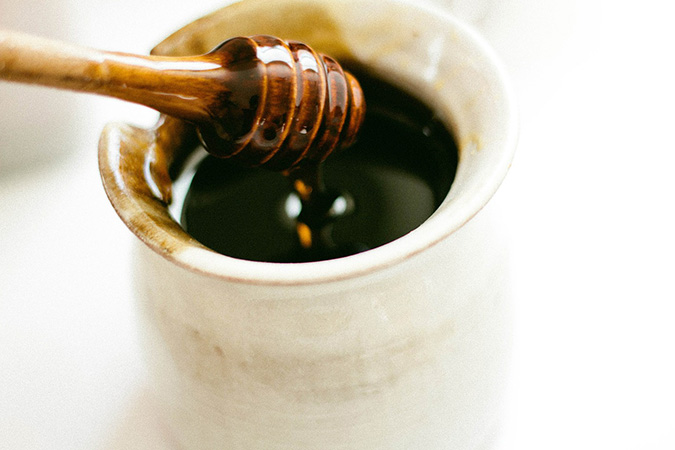
20 Sugar Alternatives for Better Health
Some people may not have realized this, but the FDA has revised the food labeling laws to require that manufacturers detail exactly how many “added” sugars are included in their products. By the end of last year (2020—the deadline for implementation), every single food label in the US was required to show exactly how much non-naturally occurring sugar was making its way into your diet.
You May Also Enjoy:
“25+ Foods With More Sugar Than You Think”
“Sugar and Heart Disease–How Lobbyists Purchased Decades of U.S. Dietary Policy”
This is actually a pretty huge change. It reflects recognition of the astounding amounts of research that have proven added sugars cause health problems. Increased risk for heart disease and diabetes are the two major downsides of consuming too many added sugars. However, there are lots of secondary effects, like premature aging; liver, pancreas, and kidney problems; depression; tooth decay; obesity; and even poor sexual performance.[1]https://www.webmd.com/diabetes/features/how-sugar-affects-your-body
The High Costs of Sugar-Related Illness
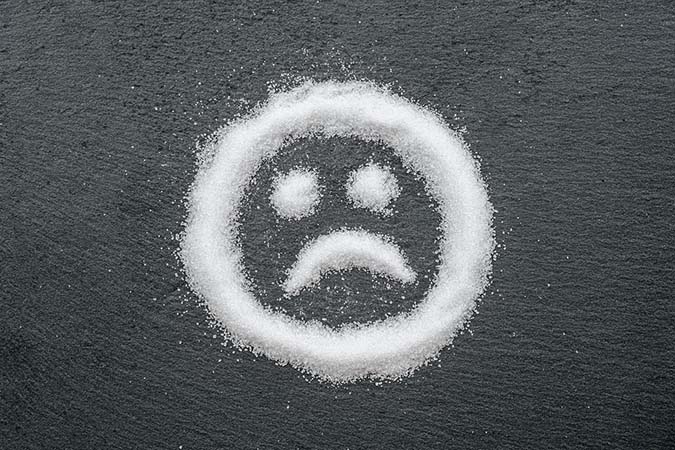
The truth is, sugar-related health costs are astronomically high. Estimates suggest that the annual health care cost for treating sugar-related illnesses, in the US alone, is over $1 trillion per year.[2]https://www.forbes.com/sites/danmunro/2013/10/27/sugar-linked-to-1-trillion-in-u-s-healthcare-spending/#38289fab6ad1 The costs are literally so great that even slow-moving bureaucracies have woken up to the fact that added sugar is straining our resources and negatively impacting human well-being.
Overcoming Addiction
Now, whether or not you already knew the facts I just gave you, I am 100% sure that you already knew added sugar was bad for you. However, knowing the truth and living your life like you believe it are two different things.
You May Also Enjoy:
“Inexpensive, Healthy Meals: How to Eat Sustainably on a Budget”
“Turnips: Tops, Roots, and Routes to Good Health For You and Your Plants”
That’s because added sugars are highly addictive. They cause dopamine spikes in your brain that can begin to control your behavior and cause you to make poor health choices.
Our Conquering Sugar eCourse is for people who want to vastly improve their health by eliminating sugar from their diets. Click here for details!
Fortunately, your body responds differently to sugars when they are consumed as part of whole foods and are naturally wrapped in fiber, protein, minerals, and more. So, you can still have your sugar and eat it, too! You just need to get it by way of naturally sweet foods.
Top 10 Whole-Food Sugar Alternatives
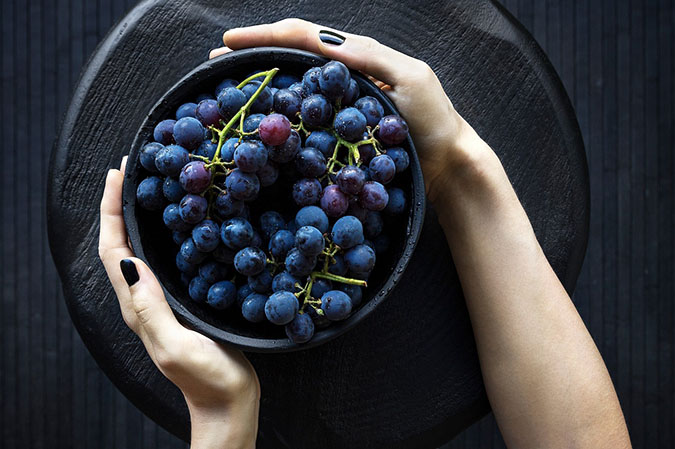
If you really want to take control of your health and overcome the dopamine desire that makes you grab that candy bar even when you know better, then cut the added sugars entirely. Instead focus on whole foods that help satiate the sweet craving without setting off those dopamine reactions that ultimately end in health-risking crashes later.
Here are some alternatives that offer a pick-me-up, but won’t lead you down the road to long-term poor health.
Sugar Alternative #1: Water
Now, I know water isn’t sweet and doesn’t contain carbohydrates. But much of the time when we feel fatigued and reach for that afternoon sugar fix, what our bodies really need is better hydration. So, before you try any of the options below, drink a refreshing glass of water.
You May Also Enjoy:
“How to Make Herbal Infusions”
Trust me! Your brain works better when you are well-hydrated. After a glass of that good stuff, you’ll be in a better position to make a smart decision about what to snack on.
Actually, you don’t have to take my word for it. Check this out to hear what Marjory Wildcraft has to say on the subject:
Sugar Alternative #2: Stevia
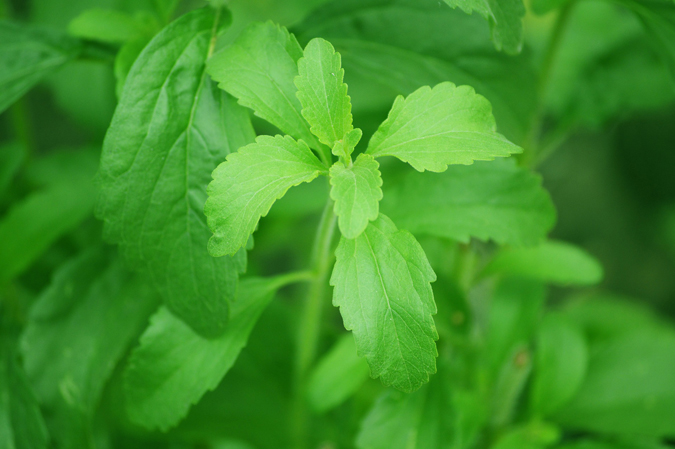
Stevia is a fairly easy-to-grow herb that can be dried and used as a powder, made into a tincture, or used in herbal infusions.
It has demonstrated anticancer and blood-sugar-management benefits. It has no calories, improves cholesterol, and offers liver protection. It’s also antimicrobial, helps regulate blood pressure, can be used topically for skin irrigation, and improves oral health.
You May Also Enjoy:
Yep, all that and it tastes good, too! If you are not totally convinced about why stevia was a shoe-in for the No. 2 slot on this list of sugar alternatives, then you may want to read TGN’s post on the benefits of stevia for more details.
Alternative #3: Bananas
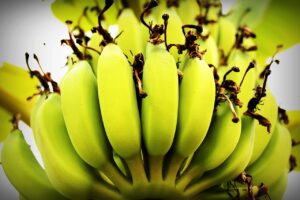
Bananas are not the most nutritious item on this list, but they are easy to find and easy to use. You can mash them up and add them as a sugar alternative to baking recipes. Or, slice them up, dry them out, and toss them into homemade granola mixes. Munch on them like chips. Add them to smoothies.
You May Also Enjoy:
“Growing Bananas and Other Tropical Delights Beyond the Tropics”
“The Top 10 Tropical Staple Crops (VIDEO)”
“Banana Trees: Tips for Planting and Growing (Even During a Cold Snap!)”
Their versatility, and the sweet satisfaction they offer, earns them a top spot on the list. But, bananas are also a good source of copper, magnesium, manganese, potassium, and vitamins B6 and C. They have fiber, help regulate blood sugar levels, may help with weight loss, are heart smart, and promote kidney health.[3]https://www.healthline.com/nutrition/11-proven-benefits-of-bananas#section9
Plus, according to our resident tropical staple food expert David the Good, if you live in USDA Zone 8 or above, you might even be able to grow them at home.
Sugar Alternative #4: Dates
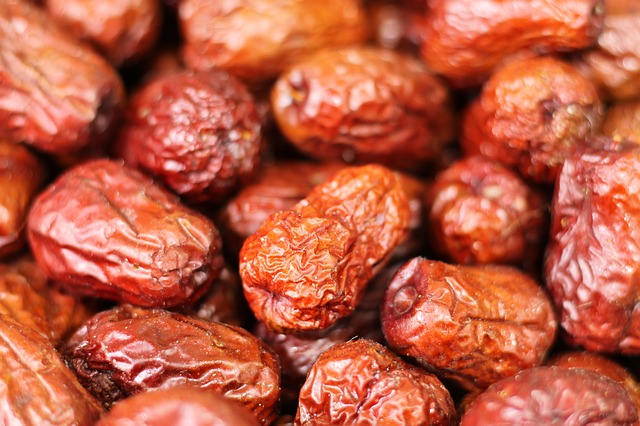
I have an almost daily date with dates. Sadly, I can’t grow them in my climate. However, even though these are often shipped over great distances to reach most of our pantries, they are such a satisfying added sugar alternative that they top my list, too.
Dates contain very high quantities of glucose, fructose, and sucrose in just the right proportion to make them extremely effective at taming the sugar beast that lives in many of us sugar addicts. It’s not just the incredible sweetness that does the trick, though.
You May Also Enjoy:
“How to Grow 21 Amazing Fruit Trees From Seed”
Dates are high in iron and fiber; rich in bone-building minerals like calcium, phosphorous, and boron; and contain a host of other beneficial nutrients and health-giving properties. So, with all that power-packed nutritional goodness and sweet satisfaction rolled into one perfect treat, dates just make you feel better when you eat them.
Oh, and did I mention they may help you poop regularly? So, if you have any troubles in that area, dates can also help you get on track when it comes to good digestion.[4]https://www.organicfacts.net/health-benefits/fruit/health-benefits-of-dates.html
Sugar Alternative #5: Grapes

There’s a reason why people routinely make wine with grapes. Grapes are very high in the natural sugars necessary to make alcohol. This also makes them a naturally perfect added sugar alternative when the craving hits. Eating whole grapes is best. But, enjoying them dried as raisins or pressed as juice is beneficial, too. You can even imbibe them as wine on special occasions!
You May Also Enjoy:
“Foraging for Wild Grapes (+My Old Family Recipe for Grape Hull Preserves!)”
“The Grapes of Youth: 11+ Age-Defying Reasons to Love This Plant”
My fellow TGN blogger Scott Sexton calls them “the grapes of youth.” And they are! They are loaded with resveratrol, which is a veritable fountain of youth (or at least a fountain of “stay younger longer”).
Add to their anti-aging properties a potential host of other benefits—like fighting cancer, boosting heart and eye health, benefiting blood sugar levels (whole fruit only), reducing allergies, reducing the risk of diabetes, regulating blood pressure, and curing constipation—and you’ve got plenty of reasons to rate grapes high on your list, too! [5]https://www.medicalnewstoday.com/articles/271156.php
Sugar Alternative #6: Sweet Potato
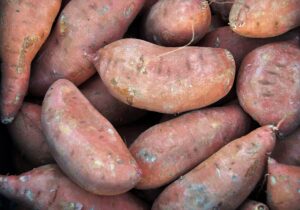
Give me a baked sweet potato, skin on, sprinkled with cinnamon for dinner or dessert any day of the week and call me satisfied. Not only does the obscene amount of fiber in sweet potatoes make you feel full for longer, but the high levels of beta carotene (critical to eye health) can actually help you see the benefits of skipping added sugars.
Even though it doesn’t take a genius to realize why you should be enjoying sweet potatoes, eating them may make you into one. That’s because sweet potatoes contain high amounts of choline and manganese, both of which are essential to optimal brain functioning. They also have a host of other nutrients that line up closely with eating dates.
You May Also Enjoy:
“Sweet Potato Vines: How to Grow This Antioxidant Powerhouse”
If you happen to grow these at home, don’t be afraid to eat the greens. They may not taste quite as dessert-like as their underground parts, but they have a host of health benefits, too.
Sugar Alternative #7: Squash Family Plants

Butternut squash, cantaloupe, pumpkin, watermelon, and zucchini are all sweet options when your sugar beast begins to gnaw at you. They’re low calorie, hydrating, and versatile in cooking. Even though each of these members of the squash family has a very different taste profile, they all register as sweet in blind tastings.
OK, so the blind tastings I am referring to might not be totally scientific. But I have a habit of sneaking all of these things into recipes as sugar substitutes and no one calls me out on my lack of added sugar.
You May Also Enjoy:
Zucchini goes into breads. Cantaloupe is my smoothie sweetener. Butternut squash and pumpkin are stand-alone desserts once baked, skins and all, or mixed into other recipes. And if you have never had the pure pleasure of throwing a watermelon in the freezer and then eating large chunks of it on a hot day, as cool juice oozes down your chin, you simply haven’t lived.
Calorie for calorie, this family of sweet eats contain loads of vitamin C, B6, and E; calcium; copper; folate; iron; magnesium; pantothenic acid; potassium; niacin; and thiamine. [6]https://www.naturalfoodseries.com/11-health-benefits-squash/ Plus, with just a bit of work to control for squash bugs and borer beetles, these are all also easy to grow at home.
Sugar Alternative #8: Sweet Onions
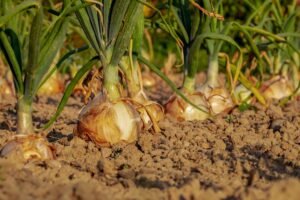
Vidalia onions are technically grown only in Vidalia, Georgia. But sweet onions, of the same varieties under other names, taste just as sweet and can be grown anywhere onions can be grown.
When roasted or sautéed in a pan, the sugars in the onions caramelize and increase in sweetness. One of my favorite sweet toppings to have with fancy cheese is sautéed sweet onion relish. Or, make a tart with browned onions slices and pears and serve it as a decadent dessert.
Besides tasting great, onions contain vitamin C and are a good source of dietary fiber and folic acid, according to the National Onion Association. They also contain calcium and iron, and have a high protein quality (ratio of mg amino acid/gram protein). They are low in sodium and contain no fat.
You May Also Enjoy:
In addition, onions contain lots of quercetin, an antioxidant compound, known to “eliminate free radicals in the body, to inhibit low-density lipoprotein oxidation (an important reaction in the atherosclerosis and coronary heart disease), to protect and regenerate vitamin E (a powerful antioxidant), and to inactivate the harmful effects of chelate metal ions.”[7]https://www.onions-usa.org/all-about-onions/onion-health-research
Sugar Alternative #9: Long-Aged Vinegar
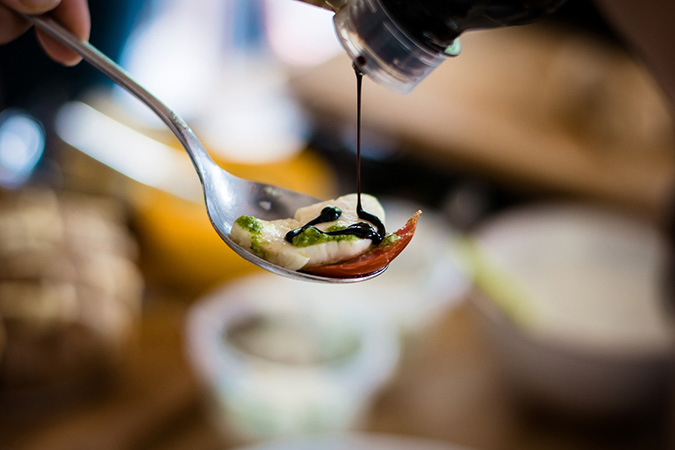
Your standard grocery-store balsamic is made to taste sweet with added sugar. However, when you get the fancy aged vinegar that is stored in barrels for 5 years or more, it tastes like a caramelized syrup that makes savory foods seem sweet.
Of course, aged vinegar can be quite costly. Luckily, you don’t have to spend a fortune to get fancy aged vinegar to use as a sweetener. With a little patience, you can make your own at home.
Raw wine, pineapple, apple, and whey vinegar get more delicious with age. My favorite aged vinegar, though, is made from elderberries. After a year or more of aging, the vinegar tastes almost like a port. It turns salads into a dessert-like treat.
You May Also Enjoy:
“How to Make and Use Apple Cider Vinegar”
“15 Natural Antibiotic Alternatives”
“Elderberry: Natural Remedy for Colds, the Flu, Inflammation … Even Cancer!”
Raw vinegar has a host of health benefits, and you can also use it to preserve foods. If you want to learn how to make raw vinegars at home, check out “The Ancient Art of Raw Vinegars: 101+ Uses for Raw, Gourmet Vinegars You Can Make Yourself for Pennies,” an eBook that Marjory Wildcraft and I wrote together.
Sugar Alternative #10: Dried Fruit
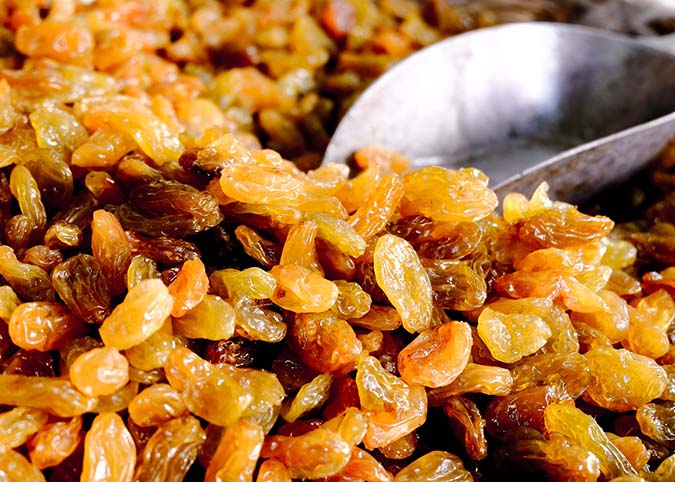
Besides some of the fruit options above, drying fruit in general increases the sweetness. Even in fruits that don’t register as sweet when eaten fresh, the sweetness factor goes way up after the liquid evaporates, tannins are mellowed, and sugars are concentrated.
Apples, apricots, cherries, chokecherries, cranberries, currents, figs, mangoes, pineapple, peaches, plums, and more are all great options to eat dried. Although the health benefits of dried fruits varies from fruit to fruit, they tend to contain high quantities of fiber, plenty of antioxidants, and many vitamins and nutrients across the board.
Just remember, both the sugar and health benefits are concentrated, so keep portions small.
7 More Nutritious Sugar Alternatives
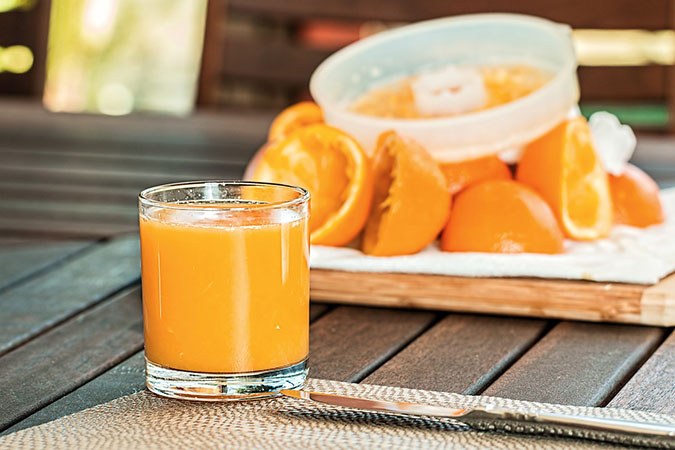
Those are my top 10 granulated sugar alternatives. But, I know … sometimes you don’t just want a substitute. You want to actually scratch the dopamine itch and go for the sugar rush, even when you know it leads to a crash later.
The good news is that, within reason, a little added sugar doesn’t have to mean a whole lot of added health consequences. The World Health Organization recommends limiting our added sugar intake to about 4 teaspoons a day.
So, if you must add sugar, my second-tier suggestions offer a bit more bang for your calorie content than granulated sugar does.
Alternative #11: Honey
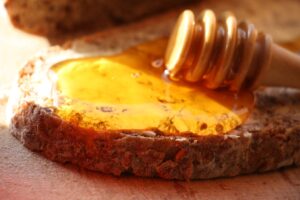
Now, when I say honey, I specifically mean raw honey that has only been minimally processed during harvest and is definitely not pasteurized. Simply put, raw honey has health benefits that processed honey does not.
Plus, unlike granulated sugar, raw honey contains small amounts of calcium, iron, magnesium, phosphorus, potassium, zinc, copper, manganese, and selenium.[8]https://nutritiondata.self.com/facts/sweets/5568/2. It has also been shown to help with allergies, raise antioxidants in the blood, control weight, improve exercise endurance, promote good sleep, and regulate blood sugar. [9]https://draxe.com/the-many-health-benefits-of-raw-honey/
Raw honey can be used topically as a natural antibacterial. Plus, you can use it to make your own cough lozenges or syrup at home.
You May Also Enjoy:
“5 Powerful Herbal Medicines You Can Make at Home”
Sugar Alternative #12: Molasses
Molasses is a by-product of refining other sugary products. Most of the time when we refer to molasses, we mean a syrup made as a result of refining sugarcane or sugar beets. However, sorghum, and syrups made from carob, grapes, dates, pomegranates, and mulberries, also fall into the broad category of molasses.[10]https://en.wikipedia.org/wiki/Molasses
Similar to honey, and unlike granulated sugar, molasses sweeteners do retain some mineral content and antioxidants from their plant parts that are beneficial to health. Blackstrap molasses is considered the most healthy. The taste is not as sweet as light or dark molasses. However, it concentrates more mineral content and plant properties than shorter-processed varieties.
You May Also Enjoy:
Molasses may be anti-inflammatory, antioxidant, menstrual benefiting, and constipation alleviating. It may also increase iron absorption, promote health during pregnancy, and reduce fatigue.[11]https://www.organicfacts.net/health-benefits/other/health-benefits-of-molasses.html Plus, it can be used to treat burns and acne, and to improve soil health.
Sugar Alternative #13: Maple or Other Tree Syrups

Maple is by far the most common tree syrup. But you can also make syrup from the sap of walnut, birch, alder, linden, sycamore, ironwood, and hickory trees, and possibly more.[12]https://practicalselfreliance.com/trees-species-tap-syrup/
Basically, syrup is made by reducing the sap from these trees by about 30 times the original quantity (e.g., 30 gallons of sap equals 1 gallon of syrup). This process concentrates the sugars and also many of the minerals found in the sap.
If you use 1/3 cup of maple syrup on your pancakes, you’ll get roughly the following quantities of your daily nutritional needs met: 7% calcium, 6% potassium, 7% iron, 28% zinc, and 165% manganese. It has antioxidants and has a lower glycemic index than white sugar. Of course, you’ll also get 60 grams of sugar, which is about 8 teaspoons more than you should enjoy in a day for good health.[13]https://www.healthline.com/nutrition/maple-syrup#nutrition
You May Also Enjoy:
“10 Incredibly Powerful Antiviral Herbs”
“How to Use Vitamin D to Help Fight the Flu”
“Calendula: Lymph Mover, Detoxifier, Cancer Fighter, and Skin Beautifier”
Still, when you are going to splurge on a sugar alternative, tree syrups are a much better way to blow your sugar quota than on boring granulated sugar. Why not drizzle a teaspoon of tree syrup over a baked sweet potato as a mostly healthy treat that won’t break the sugar bank for the day?
Sugar Alternative #14: Coconut Sugar
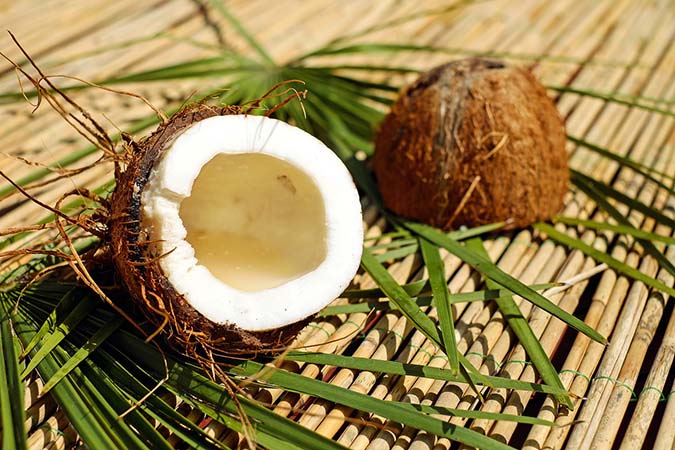
Coconut sugar usually doesn’t fit my budget. So, I honestly don’t get to use it much. But, according to Dr. Axe, it has iron, zinc, calcium, potassium, some short-chain fatty acids, polyphenols and antioxidants, and a fiber known as inulin. It may help gut health, it’s Paleo-OK, and it contains phytonutrients.[14]https://draxe.com/coconut-sugar/
As far as added sugars and sugar alternatives go, if you can afford it, it appears to be one of the better options.
Sugar Alternative #15: Fruit Preserves and Fruit Juices
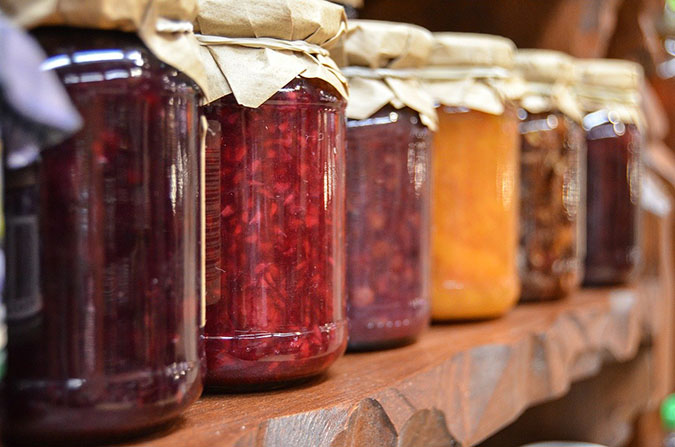
Fruit preserves usually contain added sugars. However, particularly in low-sugar recipes, it’s mostly the reduction of the fruit mash that dramatically increases the sweet flavor. Because you do get most of the benefits of the fruit, and don’t need as much added sugar to make jams taste sweet, these are good sugar alternatives that allow you to add sweetness and still come in under your daily added-sugar budget.
Similarly, fruit juice also concentrates sugars by getting rid of all the non-sweet parts like skins and such that temper some of the sugary experience. Now, all that pulp and fiber have a mitigating effect on sudden blood sugar. So without them, your body registers fruit juice much like it would granulated sugar.
You May Also Enjoy:
“9 Simple, Effective Probiotics You Can Make at Home”
“An Ode to Wild Persimmons (+My Mother’s Recipe for Persimmon Bread)”
Sugar spikes can sometimes be beneficial, though, such as when you’re completing a race or finishing a steep hike. Plus, you’ll get a good dose of vitamins, minerals, and antioxidants along with your skyrocketing blood-sugar levels.
Juice and jams are not as perfectly healthy as whole fruit. But they are perfect choices for those times when you need some added sugar.
Sugar Alternative #16: Brown Rice Syrup
Brown rice syrup is made by fermenting brown rice, then concentrating the liquid sugars that are extracted. It’s loaded with calories and is certainly not a good choice for diabetics. But, it is often cited as a good sweetener option for vegans.
I don’t think there are actually any proven health benefits to brown rice syrup. However, the unique taste makes it a necessity in some recipes.
Sugar Alternative #17: Agave Syrup
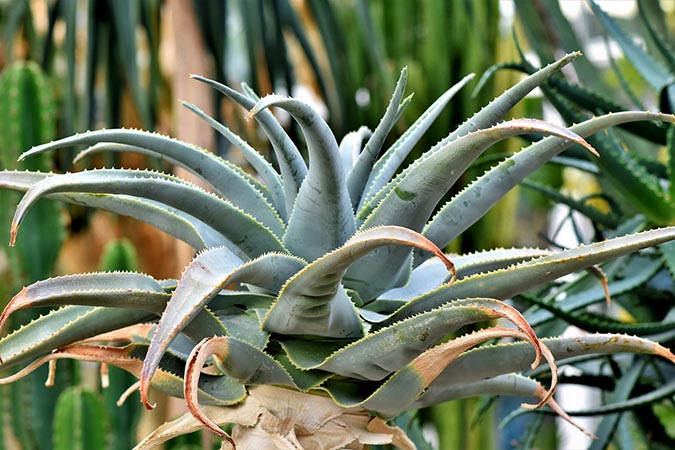
Agave is basically like the corn syrup equivalent made from the agave plant. It’s a highly processed extract of the same plant that produces tequila. It doesn’t have many health benefits, but it may register as more sweet tasting, teaspoon per teaspoon, than some alternatives. So, theoretically, it might mean you’ll use less than you would of granulated sugar.
Its makers espouse agave’s low glycemic index, relative to sugar, as one of its primary benefits. However, there’s not a lot of evidence to support this theory and may even be some to refute it.[15]https://draxe.com/agave-nectar/ As with all added sugar, know that this is a treat and use it accordingly.
Sweets For Special Cases
Personally, if I am going to eat something that tastes sweet, it’s going to contain natural or added sugars. Yet, there might be some of you out there who have good reasons for limiting natural sugar and added sugar to the extreme. In that case, there are three sugar alternatives you may want to check out:
Alternative #18: Xylitol
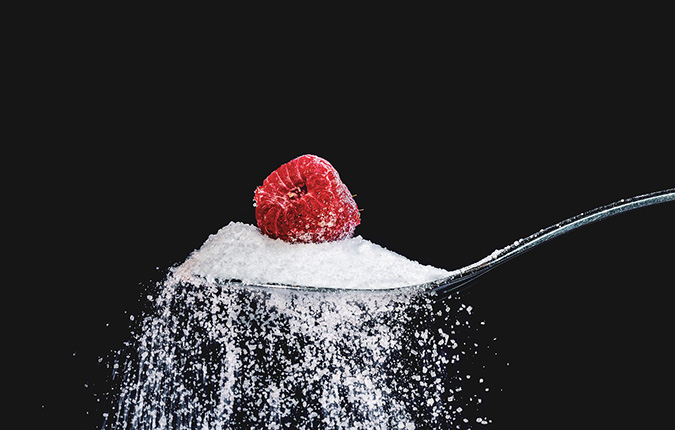
I actually only know about xylitol because I used it to make my homemade toothpaste taste better. It’s a plant extract. It’s expensive and incredibly sweet-tasting. So, small quantities are all you need.
It may cause intestinal discomfort in some people. Start slowly and build up tolerance if you plan to use this regularly. Still, with no calories, a few health benefits like inhibiting bad bacteria in your mouth, and being safe for diabetics, it might be worth a try.
Alternative #19: Sorbitol
Sorbitol is a natural sugar alcohol that is extracted from fruits and plants. It’s less sweet-tasting than sugar and has far fewer calories. It has the benefit of adding sugar-like texture and increasing the sweet satisfaction of reduced calorie desserts.
It’s considered safer for diabetics than sugar. It is also not supposed to contribute to tooth decay in the way that other added sugars might.[16]https://www.diabetes.co.uk/sweeteners/sorbitol.html
Alternative #20: Monk Fruit Sweetener
You need to be careful with monk fruit sweeteners because they often contain flavor enhancers that are not safe for diabetics. However, pure monk fruit extract is supposed to be 150 times sweeter than sugar, has no known health side effects, is calorie-free, and can be used by people on diets free of added sugar.[17]https://www.medicalnewstoday.com/articles/322769.php
What Do You Think?
With my top 20 list of granulated sugar alternatives made public for all to see, I now cede the floor to you, dear readers! Do you have any favorite granulated sugar alternatives to add to the list? Do you have any favorite preparations to share? How do you curb the cravings and quiet your sugar beast? Let me know in the comments section below!
_______________
This is an updated version of an article that was originally published on December 17, 2019. The author may not currently be available to respond to comments, however we encourage our Community members to chime in to share their experiences and answer questions!
The Grow Network is a participant in the Amazon Services LLC Associates Program, an affiliate program designed to provide a means for our team to earn fees for recommending our favorite products! We may earn a small commission, at no additional cost to you, should you purchase an item after clicking one of our links. Thanks for supporting TGN!

Tasha Greer is a regular contributor to The Grow Network and has cowritten several e-books with Marjory Wildcraft. You can follow her ABCs of Homesteading Series on the Mother Earth News homesteading blog and visit her personal blogs at reLuxe renderings and simplestead.com.
References
| ↑1 | https://www.webmd.com/diabetes/features/how-sugar-affects-your-body |
|---|---|
| ↑2 | https://www.forbes.com/sites/danmunro/2013/10/27/sugar-linked-to-1-trillion-in-u-s-healthcare-spending/#38289fab6ad1 |
| ↑3 | https://www.healthline.com/nutrition/11-proven-benefits-of-bananas#section9 |
| ↑4 | https://www.organicfacts.net/health-benefits/fruit/health-benefits-of-dates.html |
| ↑5 | https://www.medicalnewstoday.com/articles/271156.php |
| ↑6 | https://www.naturalfoodseries.com/11-health-benefits-squash/ |
| ↑7 | https://www.onions-usa.org/all-about-onions/onion-health-research |
| ↑8 | https://nutritiondata.self.com/facts/sweets/5568/2 |
| ↑9 | https://draxe.com/the-many-health-benefits-of-raw-honey/ |
| ↑10 | https://en.wikipedia.org/wiki/Molasses |
| ↑11 | https://www.organicfacts.net/health-benefits/other/health-benefits-of-molasses.html |
| ↑12 | https://practicalselfreliance.com/trees-species-tap-syrup/ |
| ↑13 | https://www.healthline.com/nutrition/maple-syrup#nutrition |
| ↑14 | https://draxe.com/coconut-sugar/ |
| ↑15 | https://draxe.com/agave-nectar/ |
| ↑16 | https://www.diabetes.co.uk/sweeteners/sorbitol.html |
| ↑17 | https://www.medicalnewstoday.com/articles/322769.php |


Excellent suggestions! My favorites, and a lot more as well.
The two I disagree with are coconut sugar and agave syrup. I may not have my facts all straight, but here is what I understand: coconut syrup is made unsustainably by cutting down young coconut trees, so you are destroying a resource that could give much more food and value for years instead of as a one-time use.
And agave syrup is made with extractants, so you have chemcial residues in it. As well, it somehow messes with the body’s blood sugar perceptions, so though it may rank low on the glycemic scale it can cause blood sugar spikes–bad for diabetics.
Iris – Thanks so much for reading and sharing your thoughts. I found this article on Grist about coconut sugar. It definitely has some environmental draw backs, but I still think it beats processed cane sugar overall. https://grist.org/food/are-coconut-products-bad-for-the-environment/.
Also, I agree with your reservations on agave. I do think it’s a hair better than granulated white sugar, but I’d opt for everything above it on the list before reaching for the agave.
Happy 2020! Tasha
This is some good info! I had been wondering about Stevia, I am glad to see that it is good stuff. Thanks for the info. However I doubt I will be sweetening the coffee with sweet onions. 😉
Ralston – You are too funny!! If you are not dairy averse, then I recommend goat’s milk for coffee sweetening. When I discovered the rich, high fat milk from the Nigerian Dwarf dairy goat, I decided those natural milk sugars were all the sweetness I need in my morning tea! Happy New Year! Tasha
If using a sugar alcohol like xylitol or sorbitol, MAKE SURE your dogs, cats, ferrets, or other small mammals don’t eat them. Xylitol is highly toxic, causing liver damage, diarrhea, lethargy, and other symptoms of toxicity.
Sorbitol is safer but can cause digestive disorders.
Be aware that even vitamins and other supplements may contain xylitol or sorbitol.